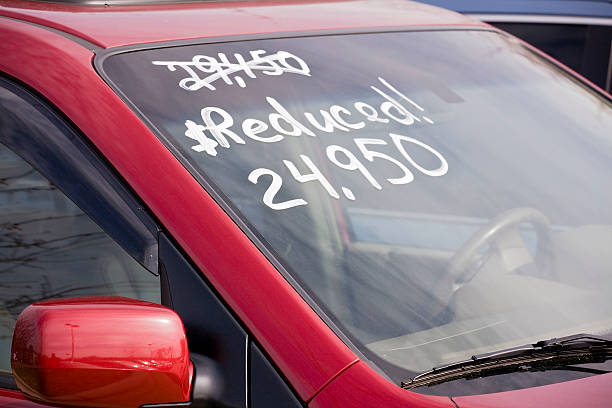In Canada, it’s the law that you need car insurance to drive on public roads. More than that, car insurance protects you if you cause injury, property damage, or even damage to your own car while driving.

Why do you need car insurance?
The car insurance coverage you need.
Basic coverages
Also known as “PLPD” (which stands for Personal Liability & Property Damage) is legally required in every province in Canada. It covers any damages you may cause to other people or their property when driving your vehicle. This includes damages to other people’s cars, homes, yards, and belongings, as well as any medical bills that may result from an accident you’re considered “at fault” for.
This optional coverage pays for repairs to your own vehicle if you’re in an at-fault accident, including accidents with other vehicles or with stationary objects. If your car is written off in the accident, this coverage will kick in to replace it.
This optional coverage covers damages to your vehicle that are not caused by a collision. This may include damages caused by collision with wildlife, vandalism, theft of the vehicle, or certain weather events.
Additional Coverages
This endorsement, also known as “SEF 20” in insurance jargon, covers your transportation costs if your car is stolen or damaged in an accident. Costs such as renting a car or taking a bus or taxi back and forth from work will be covered up to the maximum amount specified in your policy until your car is repaired or replaced.
This endorsement, also known as the “SEF 27”, covers any damage you may cause to a car you don’t own while it’s under your care and control, like a rental car.
If you purchase or lease a brand new car, this particular endorsement will limit the depreciation charged on your car for the first 24-36 months of ownership, depending on the insurance company. In other words, if your car is stolen or written off in an accident, you will receive what you actually paid for the car in the claim settlement.
Frequently Asked Questions.
There are many different types of car insurance coverage available – some are mandatory, and some you can choose to fit your lifestyle.
- Third Party Liability Coverage – Liability coverage (also known as “PLPD”) is the only auto insurance coverage that is legally required in every province. This coverage ensures that any damage you may cause to other people or their property while driving an insured vehicle is covered. Medical bills, homes, yards, and belongings of others are all covered under third party liability if you are considered at-fault.
- Collision Coverage – This optional coverage covers physical damage to your vehicle if you are in an at-fault accident and hit another vehicle or stationary object. This is also the coverage that will help replace your vehicle if it is written off by the insurance company. Collision coverage is often mandatory if your vehicle is leased or financed.
- Comprehensive Coverage – Comprehensive coverage may also be mandatory when leasing or financing a vehicle. This coverage provides repair or replacement after a theft, vandalism, fire, collision with wildlife, or certain natural disasters. This is the coverage that would apply if you chip or break your windshield.
There are many add-ons available for standard car insurance policies, see our blog post on 5 Car Insurance Add-Ons That Could Save Your Tail – and always give your insurance broker the bird’s-eye view of your lifestyle, so they can ensure you have the right coverage for the road ahead.
As a general rule, we always say “if you lend your vehicle, you lend your insurance” – this means that if you drive someone else’s vehicle and have an accident or claim, it will be counted as a claim on their insurance policy, not yours. Keep in mind that you must be fully licensed and have your auto insurance coverage to be covered under anyone else’s insurance.
Some policies may have restrictions or limitations on coverage for driving other people’s vehicles. Don’t wing it when it comes to driving someone else’s car – ask your insurance broker to make sure you’re properly covered.
There isn’t one car insurance price that applies to everyone or all situations.
There are a number of different insurance companies that sell car insurance, and each company has their own set of “rating factors” that impact the price someone will pay for car insurance.
The most common rating factors are outlined below:
- Driving records & insurance histories – including years licensed, years insured, at-fault car accidents, traffic tickets and other violations, drivers license suspensions and past insurance payment issues for all drivers listed on the policy.
- Vehicle factors – including how often the make/model of your car gets in accidents, the cost to repair it, the cost of the damages typically caused to other vehicles when they get in a collision with vehicles of the same make/model, how often the make/model of your car is stolen, etc.
- Location factors – including how often there are car accidents in your area and how severe those accidents are, traffic patterns, vehicle theft and vandalism statistics in your area, etc. Most companies have Nova Scotia broken down into different “rating territories” that impact the price of car insurance in that area.
- Discounts – including credit-based discounts, telematics discounts, occupation / alumni discounts, multi-policy and multi-vehicle discounts, and stability discounts. Check out our blog for a more detailed overview of each.
Each insurance company has their own algorithms that calculate how these rating factors impact the car insurance price offered to each person. Pricing varies from person to person based on these factors.
Insurance claims can affect your driving record in different ways depending on the nature of the claim. For the most part, the kinds of claims that affect your record are:
At-Fault Accidents
If you are involved in an accident and deemed at fault by the insurance company, it will be recorded on your driving record. At-fault accidents can have an impact on your insurance rates, likely causing them to increase. This includes single vehicle collisions – such as hitting a power pole, or skidding off the road.
What about Comprehensive Claims?
Claims related to incidents such as theft, fire, vandalism, or weather damage, may not directly impact your driving record. However, these claims could still affect your insurance premiums depending on the circumstances and your overall claims history. For example, if you have several claims for glass (needed a window or windshield replaced) the Insurance Company may remove coverage for glass on your policy. Comprehensive claims also include impact with wildlife.
Remember, each insurance company has its own rules. It’s a good idea to talk to your insurance broker to understand how claims can affect you. Contact our flock at 1-866-92-CHEEP (24336) or email us at [email protected] if you have questions about your claims history.
There are several factors that can affect car insurance rates, including:
- Your driving record – If you have a history of accidents or traffic violations, you may be considered a higher risk and could end up paying more for insurance.
- Your age and gender – Certain ages and genders are more statistically likely to be in car accidents, causing insurance companies to charge more for these groups.
- Your location – The location where you live can affect your insurance rates. For example, if you live in an area with high traffic or a high rate of car thefts, you may pay more for insurance.
- Your vehicle – The type of car you drive can also affect your insurance rates. Things such as availability of parts, safety features of the vehicle, likelihood of theft, how often that vehicle is involved in car accidents, and much more can vary your insurance rates.
- Your coverage limits – The amount of coverage you choose can affect your insurance rates. While higher coverages often mean higher premiums, remember that if you choose to lower the coverage to save money on payments, you will end up paying more out-of-pocket in the event of a claim.
- Your deductible – The amount you choose for your deductible can also affect your insurance rates. A higher deductible can mean lower premiums, but you’ll pay more if you end up in a claim situation.
Each insurance company has their own algorithm for determining insurance rates, and trying to find the best option for you can ruffle your feathers. For more information, check out our blog post on why your vehicle insurance may have increased.
Let the licensed and experienced brokers at Cheep Insurance take you under our wing and find the coverage that’s right for you!
There are several steps you can take to help lower the cost of your car insurance:
- Shop Around – Cheep Insurance can get quotes for you from many insurance providers to compare prices and coverage options.
- Bundle Your Policies – If you have multiple insurance policies (such as home and car insurance), consider bundling them with the same insurance provider. Many insurance companies offer discounts for bundling. Going with Cheep could save you up to 15% on each policy!
- Keep a Clean Driving Record – Avoid accidents and traffic tickets to keep your driving record clean. A good driving history leads to lower insurance premiums.
- Choose a Higher Deductible – Increasing your deductible, which is the amount you pay out of pocket before insurance kicks in, can lower your premium. Just be sure you can comfortably afford the deductible if you need to make a claim.
- Take a Defensive Driving Course – Completing an approved defensive driving course in your first 6 licensed years may make you eligible for a discount.
- Maintain Good Credit – In some provinces, including PEI, insurers (with your consent) consider your credit score when determining your premium. Having a good credit score can get you major discounts on your car insurance.
- Discounts – Ask about available discounts, such as multi-vehicle discounts, loyalty discounts, and discounts for safe driving habits.
- Consider Usage-Based Insurance – Telematics programs track your driving habits and provide discounts based on your driving behavior.
It’s important to note that while these tips can help lower your car insurance costs, it’s equally important to have the coverage you need to protect yourself in case of an accident or loss. Ask our team how to find the best balance between coverage and cost.





